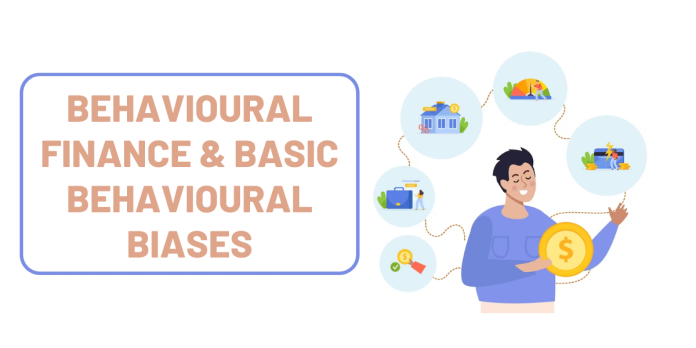Have you ever bought or sold shares based on your personal beliefs rather than the facts? If so, this article is for you. Here, we are going to cover an important aspect of investment known as behavioural finance.
What is Behavioural finance?
Well, it is the study of psychological influences on investors and financial markets. At its core, it is about identifying and explaining inefficiency and mispricing in financial markets. It focuses on explaining why investors often appear to lack self-control, act in their own best interest, and make decisions based on personal biases instead of facts.
It uses experiments and research to demonstrate that humans and financial markets are not always rational, and the decisions they make are often flawed. If you are wondering how emotions and biases drive share prices, behavioural finance offers answers and explanations.
Now let’s delve into Behavioural Economics
It focuses on understanding economic behaviour and economic psychology. Through this field, it attempts to explore why people often make emotional decisions rather than logical ones. It often seeks answers to questions such as why even experienced investors buy too late and sell too soon.
It has also been found that people tend to make the same types of mistakes and show certain biases in specific situations. This gives us a way to understand when and why people make errors. There are two main things in human behaviour that are crucial in behavioural economics: “heuristics” and “biases.”
Heuristics are mental shortcuts we use to make decisions quickly without spending much time thinking. Investors and financial professionals often use heuristics when analysing investment decisions. It is often based on general rules or assumptions that are usually right but not always.
A common heuristic that people often use is assuming that if an investment did well in the past, it will do well in the future. This might seem logical at first glance, but it doesn’t consider things like changes in the economy or whether a stock is already priced very high. Taking mental shortcuts in investment analysis can sometimes harm a portfolio’s performance.
Fortunately, when people become aware of errors caused by heuristics, they can adjust their decision-making processes. Additionally, they can figure out which heuristics are trustworthy.
When economic and financial heuristics lead to wrong judgments and beliefs, they create what we call “cognitive biases.”
Some of the most common cognitive biases include:
- Confirmation Bias: People tend to seek out information that supports their existing beliefs and ignore information that contradicts them.
- Overconfidence Bias: Individuals often overestimate their own knowledge and abilities, leading to excessive risk-taking.
- Anchoring Bias: People rely too heavily on the first piece of information they encounter when making decisions, even if it’s irrelevant.
- Loss Aversion Bias: It refers to strongly preferring avoiding losses to acquiring gains. The fear of loss leads to inaction. Studies show that the pain of loss is twice as strong as the pleasure of gain of a similar magnitude.
- Self-attribution bias: Believing that good investment outcomes are the result of skill, and bad results are caused by bad luck.
- Framing bias: It is when people make financial decisions based on how information or opportunities are presented to them. The way something is framed or described can influence how people perceive it and, consequently, how they react to it.
- Representative bias: Believing that two things or events are more closely correlated than they really are. This bias can lead to incorrect judgments because it relies on superficial similarities rather than a deeper analysis of the relevant data or factors.
These biases and heuristics significantly impact various aspects of finance and investing such as Investor behaviour which often leads investors to make irrational decisions rather than well-thought-out investments.
Know: Overcome These Biases To Become A Successful Investor In The Stock Market
Trading psychology, which affects the success or failure of trades, can be influenced by heuristics such as making decisions based on a single positive outcome, anchoring bias, loss aversion, and confirmation bias. These can lead to less desirable financial outcomes.
The collective and independent decisions of millions of individuals in financial markets are influenced by human heuristics and biases. This can result in anomalies in the valuation of securities and market performance. Understanding these factors can lead to better market performance.
In short, these biases and heuristics can have a profound impact on financial decision-making, trading, market behaviour, and overall investment outcomes.
Some investors believe their heuristics and biases are rational and scientific, but they are often driven by emotions rather than logic. Recognizing and addressing these biases is essential for making more informed and rational financial choices.


